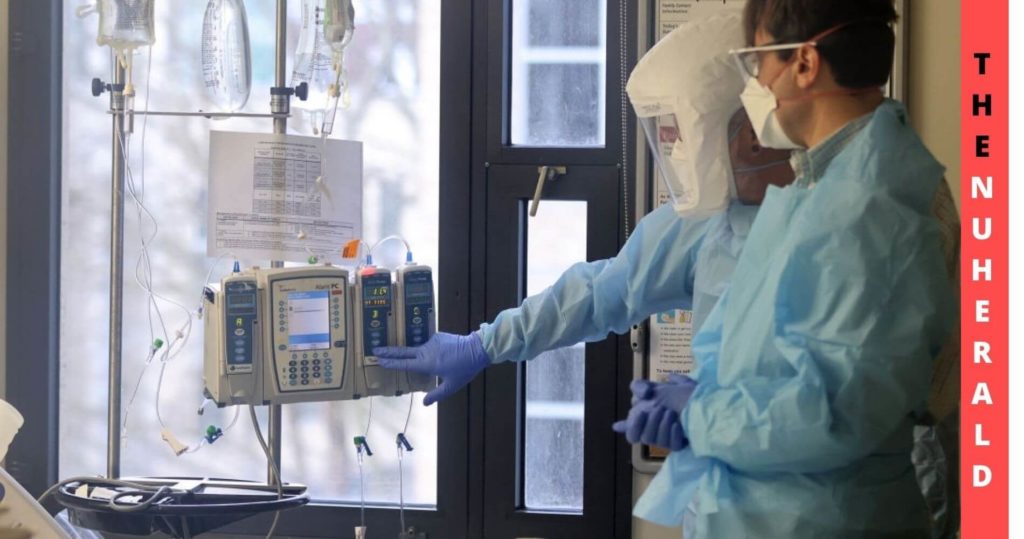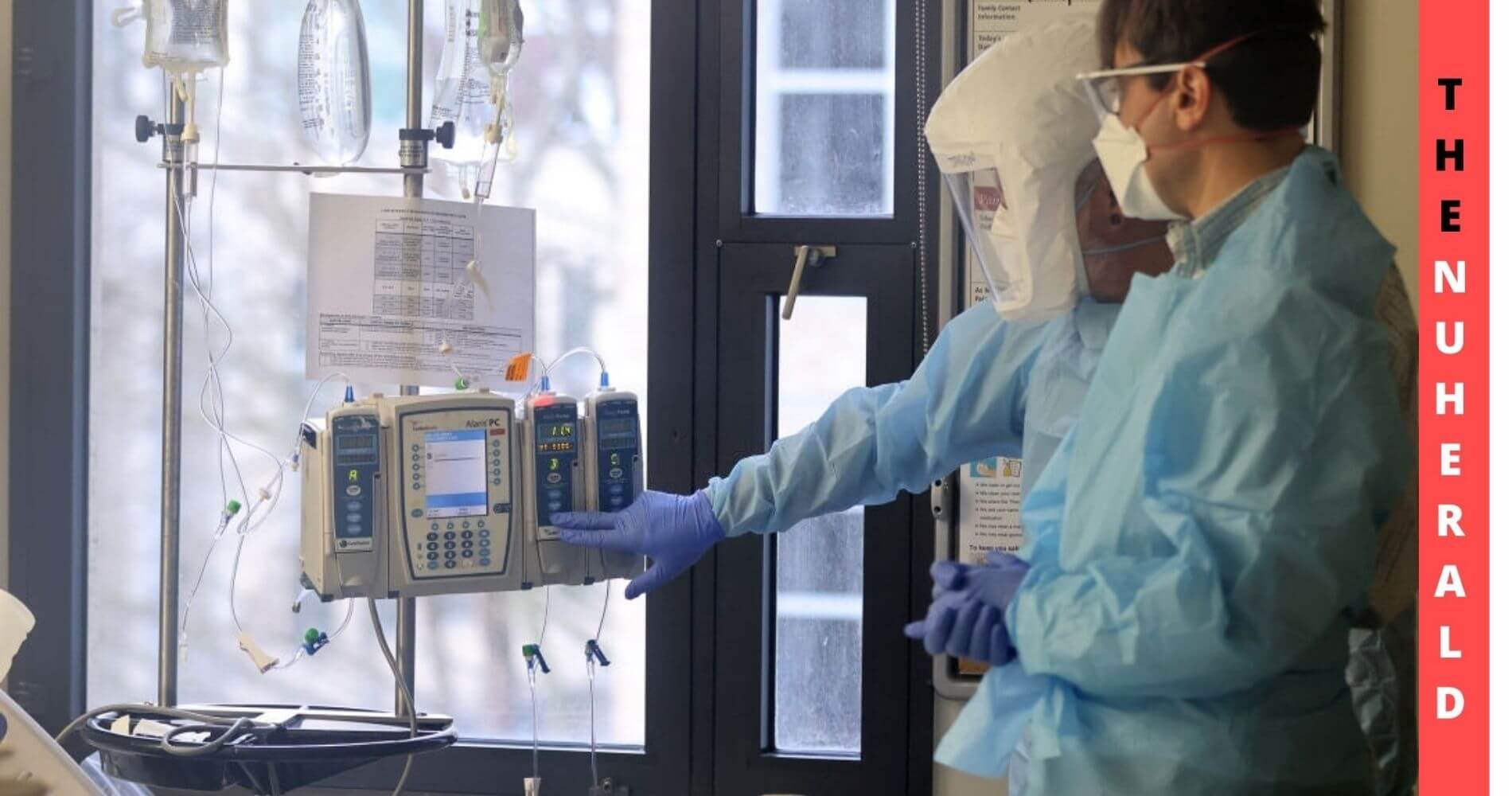Driving to the hospital in Pascagoula, Miss. Bobbie Anne Sison hit the brakes suddenly as she got a petrified call from her best nurse stating her absence at work as her car broke down on Route-63. Miss Sison rushed to help her, she just couldn’t afford her absence at such a time when many other healthcare workers were falling ill due to the virus. The 350 bedded hospital was constantly filling all the vacant beds with patients after a month’s interval.
Another Wave Troublesome For Southern Nurses
The beginning of the month was a handful of cases but not later. Along the Gulf Coast of Mississippi were three small, county-owned networks of hospitals were on Sunday, over 106 coronavirus patients were being treated. Frightened Ms. Sison didn’t want to imagine the future as she wasn’t sure how to deal with the same situation over again where 40 percent of covid-19 tests came positive again and about 100 healthcare workers were affected by the virus.

Even though the Northeast and Upper Midwest entered the declining phase, the hospitals saw a continuous admission of patients filling the vacancies. Despite the administration wanting the keep one-third of its beds reserved for its registered nurses, they couldn’t hold it much longer. With Pascagoula Hospital being the city’s only acute care health facility there were not enough ICUs to deal with severely ill patients in the ER.
Singing River’s chief executive, Mr. Lee Bond stated that Omicron is the foundation of the shortage of healthcare workers which will still be there even after the virus reduces. One in every five healthcare workers has left the profession in the last two years as a result of exhaustion and stress. They are fuming at patients denying vaccination, on hospital administration because of less nurse to patient ratio, and also at all those political leaders opposing the use of masks which might help in reducing the infections.
Further on he adds that the pandemic has been quite unpleasant for small and nonprofit safety-net hospitals because of the mass emigration of healthcare workers. Also having less hourly pay scale ($30) as compared to the traveling nurses ($200), healthcare workers at the Mississippi lack interest in providing the best possible services.
Medical aid in Mississippi has worsened over the refusal of financial help by member states, which would be $600 million annual federal aid and 11,000 new jobs each year. Already financially week before the pandemic, Gov. Tate Reeves and other Republican leaders have been repelling relief aid during the covid-19 times thereby pressurizing the healthcare workers.
Continuing, he said that a registered nurse, Kelly Cumbest brought into notice that over several months just a single application had been received for a vacancy of 24. He also mentioned that omicron worries them but the shortage of staff i.e. 2000 vacancies scares them, as there are not even sufficient staff members to deal with other health issues which is something that leaders and the public don’t understand. Mr. Bond said that Singing River achieved $30 million additional funds and is expressing the leaders to use a quarter of $1.8 billion in federal pandemic relief fund for nurses but lawmakers have proposed $1000.
The staff sometimes gather near the cafeteria to catch up and have a conversation. But the situation is not as pleasant as it seems. Patients were answered immediately for help in case of water requirements, washroom assistance, and clean-ups, and the violet flashing light confirm the same. But sometimes emergencies arise. Deborah Briggs, a 64-year-old recently admitted got the oxygen mask off due to anxiety. Finding it difficult to breathe, wheezing needed immediate help, and three nurses helped her.
Teresa Phillips, a hardworking nurse who rejoined after her second battle with covid-19, expresses her desire to serve the patients in the best possible ways such as timely medications, routine checkups, cleanliness, and hygiene. But finds it to be difficult to address due to 25 percent lesser staff.
When asked about how they are keeping strong during these tough times, Caroline Olivera 24, a baby nurse, appointed at the beginning of the pandemic cried describing her situation by calling her the fittest to survive explaining how overtime shifts and emotional toll cause mental stress and exertion.
A similar situation was faced by the residents of Pascagoula, a town of 22,000 where they are still recovering from the devastating wrought caused by Hurricane Katrina. Despite lesser pay, the loyalty of healthcare workers helped a lot. For the first time, the administration had no other option but to hire travel nurses to deal with the Delta virus and as the infection reduced these nurses moved out for better payouts.
With just $10/ hour, Brandon Russell a certified nursing assistant, dressed up in all safety suits tried the stay calm and cheered every patient he visited. He himself just recovered from Covid makes him uninterested in his job and is ready to quit.
Ms. Sison recalls how she had to console and uplift other nurses which first break down and later quits. She also recalls how painful it has been to see people pass away, from an 18-year-old young lad begging for air, to losing a father of four to an elderly man leaving just before his family arrived. She further adds that she was 33week pregnant when the pandemic began and had lost her child due to covid and that the loss has been personal. Three weeks later she joined where her entire team was there to support her and vice-versa.
Just then a person who overheard the conversation played a song that marked the birth of a newborn. She mentions how they used to play “Don’t Stop Believin” after every recovery and discharge with the hope that science and self-sacrifice will win, but now they don’t play it anymore.
